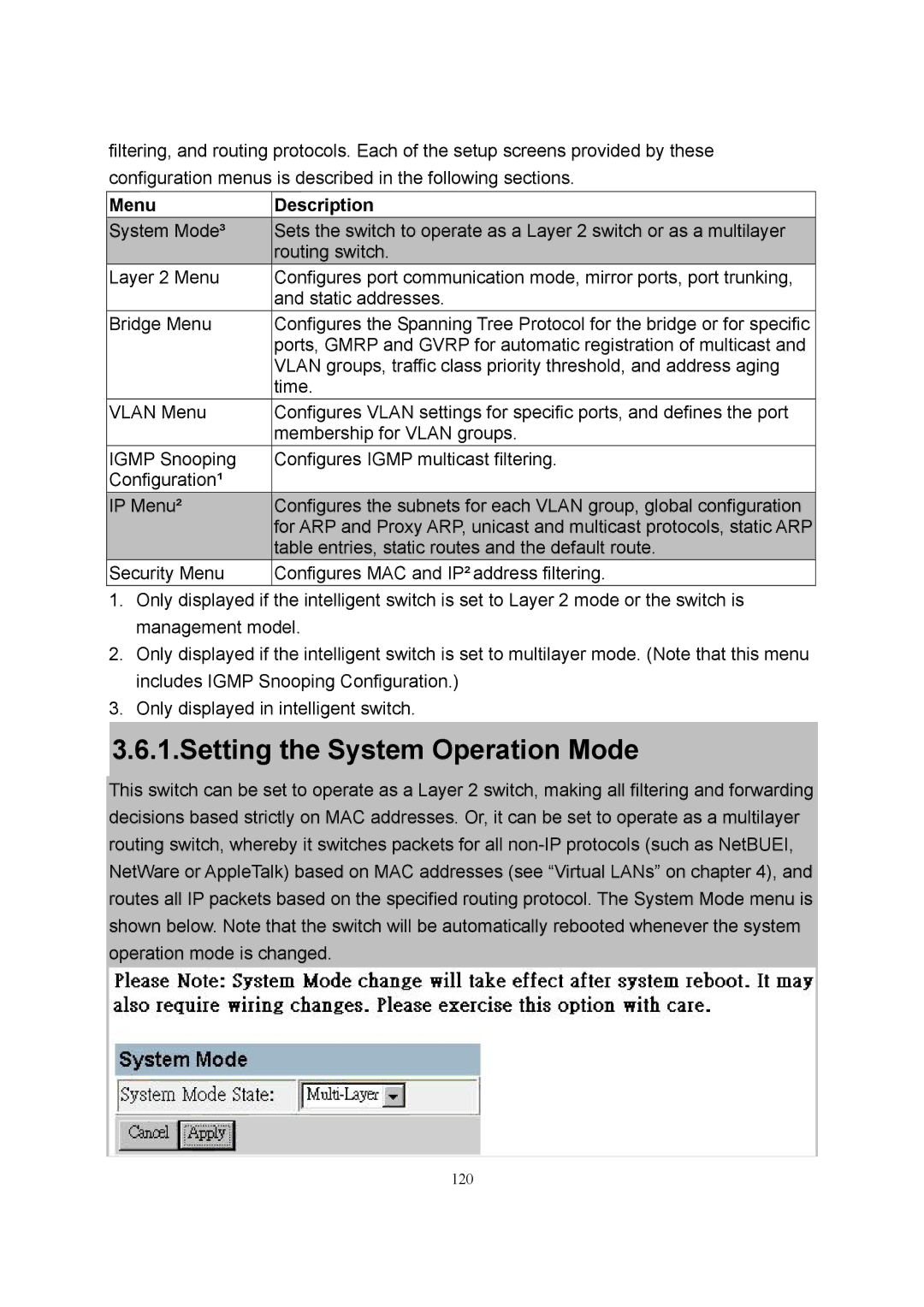
filtering, and routing protocols. Each of the setup screens provided by these configuration menus is described in the following sections.
Menu | Description |
System Mode³ | Sets the switch to operate as a Layer 2 switch or as a multilayer |
| routing switch. |
Layer 2 Menu | Configures port communication mode, mirror ports, port trunking, |
| and static addresses. |
Bridge Menu | Configures the Spanning Tree Protocol for the bridge or for specific |
| ports, GMRP and GVRP for automatic registration of multicast and |
| VLAN groups, traffic class priority threshold, and address aging |
| time. |
VLAN Menu | Configures VLAN settings for specific ports, and defines the port |
| membership for VLAN groups. |
IGMP Snooping | Configures IGMP multicast filtering. |
Configuration¹ |
|
IP Menu² | Configures the subnets for each VLAN group, global configuration |
| for ARP and Proxy ARP, unicast and multicast protocols, static ARP |
| table entries, static routes and the default route. |
Security Menu | Configures MAC and IP² address filtering. |
1.Only displayed if the intelligent switch is set to Layer 2 mode or the switch is management model.
2.Only displayed if the intelligent switch is set to multilayer mode. (Note that this menu includes IGMP Snooping Configuration.)
3.Only displayed in intelligent switch.
3.6.1.Setting the System Operation Mode
This switch can be set to operate as a Layer 2 switch, making all filtering and forwarding decisions based strictly on MAC addresses. Or, it can be set to operate as a multilayer routing switch, whereby it switches packets for all
